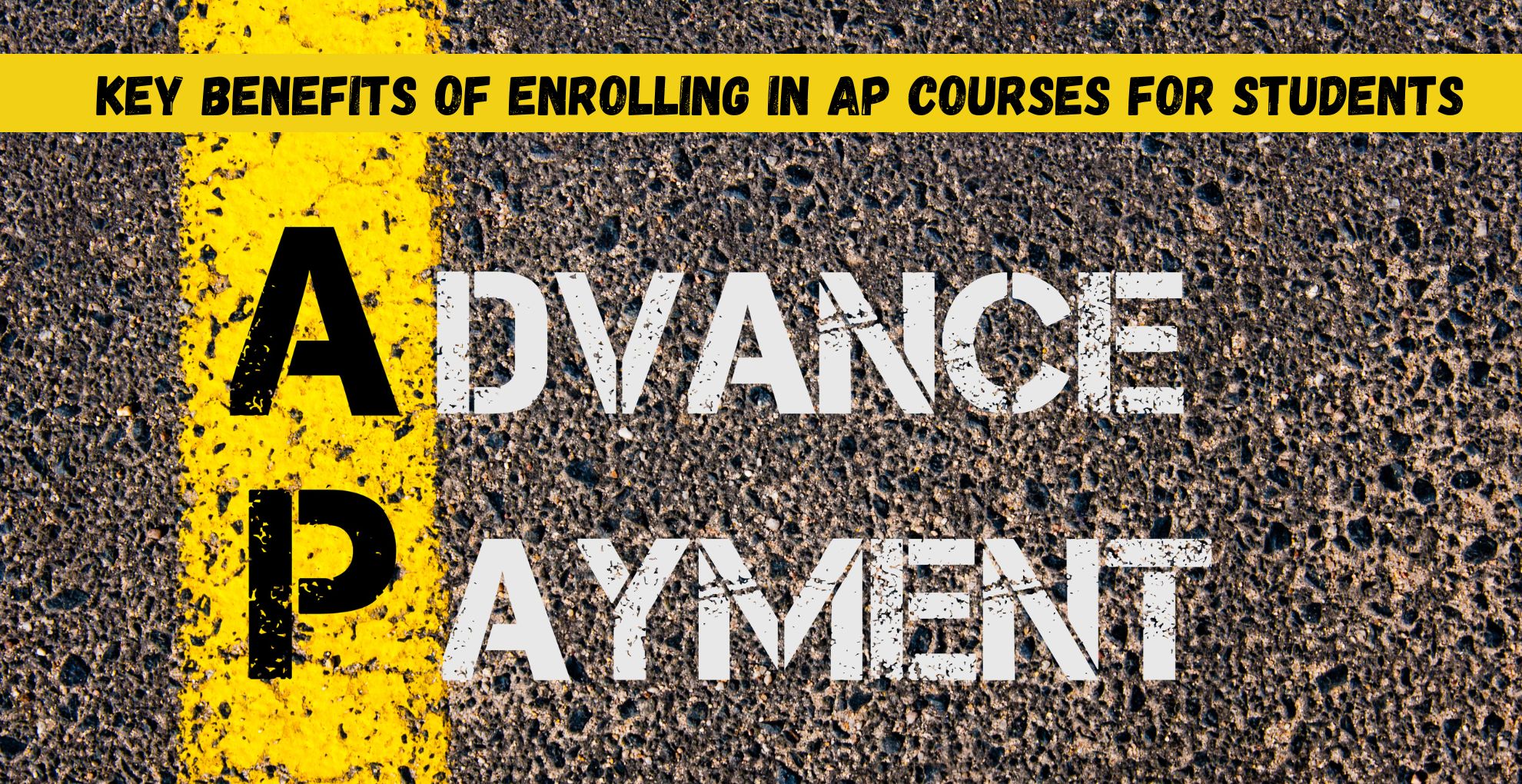High school students looking for a challenge have long regarded Advanced Placement (AP®) courses as the best option. AP courses can help clear the path for those who are interested learners looking to gain a head start on college or ambitious students hoping to receive an acceptance letter from an Ivy League school. But are the pressure to perform, the long study sessions, and the work worth it? Yes, and with good cause, for a large number of pupils.
The main advantages of taking AP classes will be discussed in this post. You’ll discover why AP courses are much more than just a mark on a transcript, from career preparation to college readiness. Additionally, you’ll discover useful advice to help you maximize your AP experience.
What Are AP Courses?
Advanced Placement (AP®) courses are college-level classes offered in high school across a range of subjects—from Calculus and Chemistry to Art History and Japanese Language. Administered by the College Board, these courses conclude with a standardized exam in May. Scoring well on the AP exam could earn you college credit or allow you to skip introductory courses in college.
But the benefits go far beyond college credits.

College Advantages of AP Courses
A Head Start on College Credits
The ability to receive college credit is one of the most well-known benefits of taking AP classes. You can save time and money in college if you receive a score of three or better on an AP exam (on a scale of one to five). AP credits are accepted by many universities, which implies:
- You might graduate ahead of your classmates.
- You could reduce your overall tuition bill.
- You’ll be able to jump into advanced or specialized college courses sooner.
For example, a student who passes AP Biology and AP U.S. History may be able to skip those introductory college classes, lightening their first-year course load.
Boosting College Applications
Transcripts of AP courses are highly coveted by college admissions officers. Why? They exhibit academic rigor and a readiness to go above the requirements of the typical high school curriculum.
Consider two students with comparable GPAs: one enrolled in all regular classes, while the other selected a few advanced placement courses. The second student’s initiative and intellectual curiosity will probably make them stand out.
A slightly lower GPA can potentially be compensated for using AP courses. A B in an AP course may be worth more than an A in a regular class because many institutions use weighted grading for these courses.
Academic and Personal Growth
Developing College-Level Skills
AP courses aren’t just about memorizing facts—they teach you how to think. You’ll practice analyzing primary sources, constructing persuasive arguments, conducting experiments, and solving complex problems.
These are the same skills you’ll use in college. By mastering them in high school, you’ll be better prepared to handle the academic demands of higher education.
Enhancing Time Management and Study Habits
AP classes demand more independent work and time management than regular courses. You’ll likely be juggling essays, projects, and exam prep at a pace similar to that of college courses. It’s a challenge—but one that pays off.
Students who take AP courses often report feeling more confident and organized when they enter college. They already know how to manage multiple deadlines, participate in discussions, and take detailed notes.
Emotional and Social Benefits
Confidence and Independence
Something is empowering about rising to a challenge. When you take an AP course and succeed—whether that means passing the exam or just holding your own in class—you gain confidence. You learn what you’re capable of.
For many students, AP courses become defining experiences. You might surprise yourself by how much you can accomplish with discipline and passion.
Finding Your Passion
With more than 30 AP subjects available, there’s a good chance you’ll find a class that aligns with your interests. Whether it’s Environmental Science or Psychology, AP courses allow you to dive deeper into topics that matter to you.
This exploration can even help shape your future. Many students discover their intended major—or even a lifelong career—through an AP course they fell in love with in high school.

Financial Benefits
Saving on Tuition
College is expensive, and every credit hour counts. By earning AP credits, you might reduce the number of courses you need to take in college. Fewer classes mean lower costs. For students attending private universities or out-of-state schools, this can translate into thousands of dollars in savings.
Graduating Early
Earning enough AP credits can allow some students to graduate college a semester or even a full year early. That’s more than just savings—it’s a head start on graduate school, internships, or your first job.
Career Preparation
Building a Competitive Edge
In an increasingly competitive world, AP courses help students stand out—not just in college admissions, but also in future job applications. Employers value applicants who’ve shown they can tackle difficult material, think critically, and manage time effectively.
Foundation for STEM, Humanities, and More
If you’re considering a career in STEM, AP courses in subjects like Calculus, Physics, and Computer Science give you a strong foundation. Similarly, AP English, History, or World Languages can prepare you for careers in law, communications, or international relations.
Tips for Success in AP Courses
Enrolling in AP classes is one thing; succeeding in them is another. Here’s how to set yourself up for success:
Start with a subject you enjoy – You’re more likely to stay motivated and engaged.
Balance your schedule – Don’t overload yourself. It’s better to excel in one or two AP classes than to struggle with four.
Use available resources – AP textbooks, review guides, and online practice tests can be invaluable.
Seek help early – Don’t wait until you’re overwhelmed. Teachers, tutors, and study groups can make a big difference.
Take care of your well-being – Sleep, downtime, and healthy habits are key. Burnout helps no one.
Common Misconceptions
“AP classes are only for straight-A students.”
Not true. While AP classes are challenging, they’re designed for motivated students of all backgrounds. If you’re willing to put in the effort, you can succeed.
“If I don’t score a 5, the class was a waste.”
Even if you don’t ace the exam, the skills you develop are valuable. Colleges still recognize the effort you made by enrolling in an AP class.
“AP courses aren’t accepted by most colleges.”
Most U.S. colleges accept AP credits in some form. Be sure to check individual college policies, but you might be surprised by how much credit you can earn.

FAQs About AP® Courses
How many AP classes should I take?
It depends on your goals and capacity. Top-tier colleges may expect several AP classes, but taking even one or two shows initiative. Balance is key.
When should I start taking AP courses?
Many students begin in their junior year, but some schools offer AP courses as early as sophomore year. Start when you feel ready for the increased workload.
Can I take an AP exam without the class?
Yes! If you’re prepared, you can self-study and take the AP exam without enrolling in the corresponding course. This is common for homeschooled students or those without access to certain AP classes.
Final Thoughts
Taking AP classes is an investment in your future, not just a decision to do well academically. These classes provide stronger application, financial savings, personal development, and college credit. Most significantly, though, they provide you with the opportunity to push yourself, find new interests, and demonstrate to yourself that you are capable of succeeding at the collegiate level.
AP classes can open doors, whether your goal is to get into a prestigious university, save money, or just love studying. You may be surprised by how far you can push yourself.




